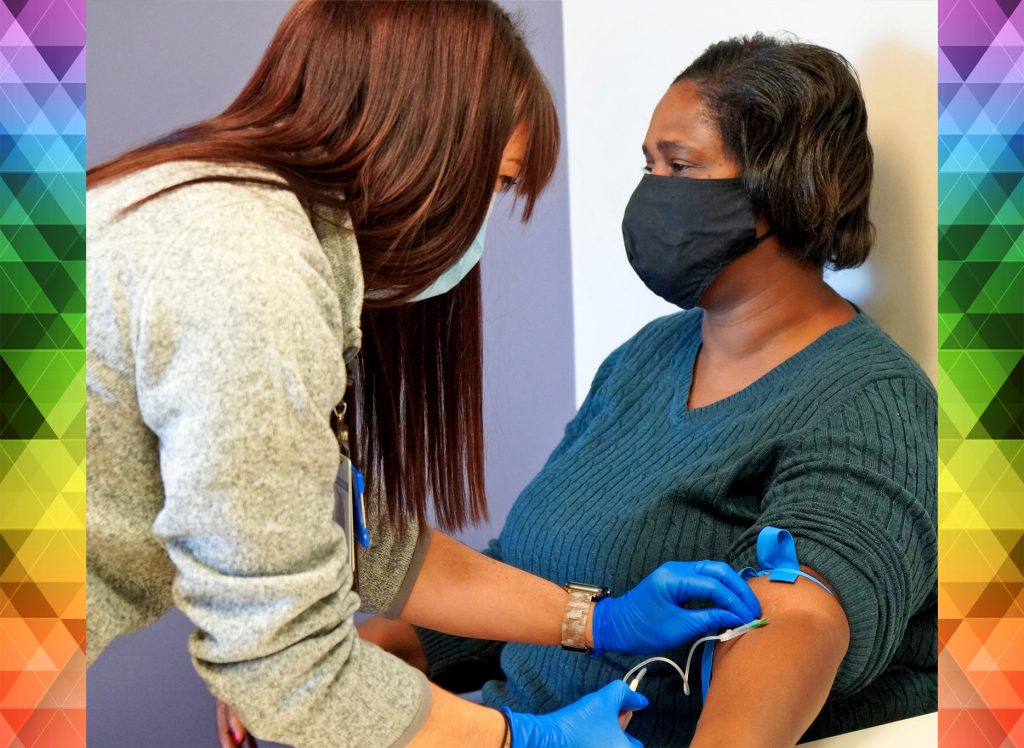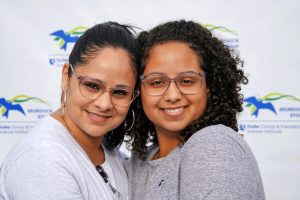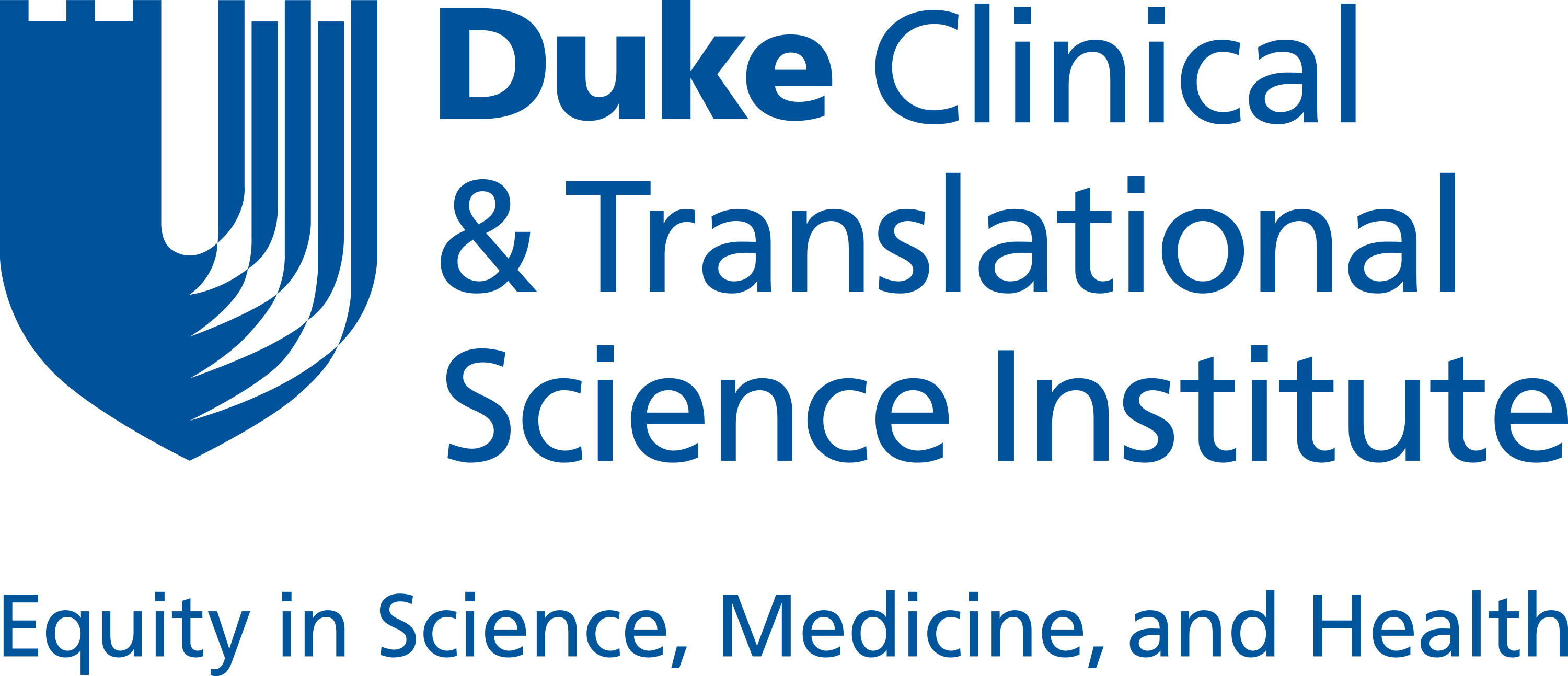CTSI Takes Action on COVID-19

Duke TransPop supports recruitment and enrollment for multiple community-based CTSI research studies in Kannapolis at the N.C. Research Campus.
CTSI Teams Support Communities at Duke, in Durham, and Beyond
In the midst of the pandemic, most groups across Duke had to adjust to a new way of working. For the Duke Clinical and Translational Science Institute (CTSI), this time was spent exploring new ways to support communities in Duke, Durham, and beyond.
Working with the Duke Community
In May 2020, the CTSI sponsored “A Call to Action: Identifying next steps to address biomedical, health care, and social drivers of COVID-19 disparities” research symposium. This online university-wide discussion on COVID-19 disparities and health equity examined the causes, consequences, and solutions related to COVID-19 and its impact on our community.
The symposium speakers and panelists represented disciplines from lab science to community and population health science and included experts in environmental and social science as well as ethics and policy. Key representatives from the community, including leaders from local clinics and the Department of Social Security, as well as the Durham County Sheriff, offered their perspectives on the community’s response to the pandemic and what can be done to recognize and repair the evident health disparities.
The CTSI hosted another virtual symposium on July 9, “Research Resilience in the Age of COVID-19: Insights from Sponsors and Investigators.” Resources from the symposium, including session recordings and PowerPoint slides, are available on the CTSI website.
Engaging the Durham Community
The Community Engaged Research Initiative (CERI) has developed a page on the Community-Engaged Research e-Library dedicated to COVID-19 resources. In May, CERI staff members presented the e-Library to the Community Engagement Brokers across the CTSAs. The e-Library’s COVID-19 resources include health and safety guidelines, resources in English and Spanish, and research and volunteer opportunities.
CERI supported Durham’s Partnership for Seniors’ online COVID-19 Telephone Reassurance Training in early April and continues to be involved in a working group that is helping to write and provide COVID-19 health information to older adults in the Durham community. CERI also worked with the partnership to write a rapid response Duke Corporate Partnership for Durham’ COVID-19 recovery grant proposal titled “Durham’s Partnership for Seniors and More — COVID-19 Response: Making Connections While Distancing.” The goal of the grant is to provide essential information and supplies to socially isolated older adults and to train existing community connectors/champions as community health workers to make connections with older adults. The Partnership received an award of $50,000.
CERI has also been responding to a greater number of consultation requests since March: 23 consults were conducted in March, April, and May.
Supporting Health Research Studies
Leveraging the community-based MURDOCK Study and its highly engaged 12,500-plus participant cohort in Cabarrus County, Duke CTSI TransPop quickly stood up two new studies and supported recruitment for other initiatives in response to COVID-19.

The MURDOCK Study is CTSI’s landmark longitudinal research initiative in Kannapolis.
Co-located in Kannapolis and Durham, the TransPop team during the summer of 2020 launched the MURDOCK Cabarrus County COVID-19 Prevalence and Immunity (C3PI) Study, a partnership with the State of North Carolina, and the MURDOCK COVID-19 Opinions, Perceptions & Experiences (COPE) Study, a partnership with the Duke Science Research Institute (SSRI).
Through the MURDOCK Study and the Duke TransPop Volunteer Registry, TransPop also supported recruitment for CovIdentify, COVID-19 research being led by Duke co-PIs Dr. Jessilyn Dunn and Dr. Ryan Shaw. This study may help predict early cases of COVID-19 infections in people and ultimately monitor the spread of the coronavirus by using data generated by wearable smart devices.
The Recruitment Innovation Center has worked to support the Healthcare Worker Exposure Response & Outcomes (HERO) Registry at Duke. The HERO Registry invites healthcare workers to share clinical and life experiences in order to understand the perspectives and problems faced by those on the COVID-19 pandemic front lines. HERO Registry participants may have the opportunity to participate in future research studies to improve our understanding of COVID-19 and beyond, generating evidence to help healthcare workers stay safe and healthy. Learn more about the HERO Registry at https://heroesresearch.org/.
